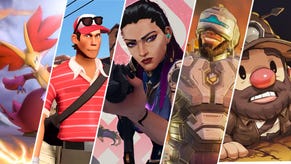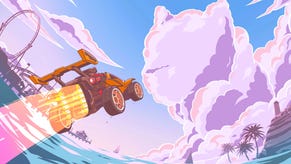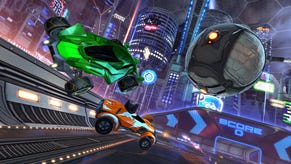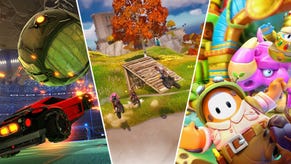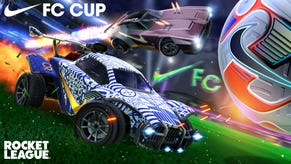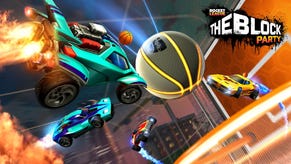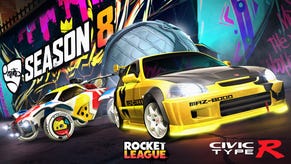Rocket League: How Last Year's Surprise Hit Changed Psyonix, and What's Next for 2016
Psyonix CEO and design director Dave Hagewood talks about the rise of 2015's breakout hit, and what we should look forward to in the new year.
This article first appeared on USgamer, a partner publication of VG247. Some content, such as this article, has been migrated to VG247 for posterity after USgamer's closure - but it has not been edited or further vetted by the VG247 team.

What's next for Rocket League?
With the new year upon us and Rocket League's first season winding to a close, Psyonix's next challenge is to figure out how to make Rocket League's success truly sustainable.
It's managed to hold on to its community to this point in part because of its deceptive depth. The best Rocket League players can perform truly remarkable feats in the air, effortlessly banking the ball off walls into the goal. Its sustained success can also be attributed to the fact that it's a great palate cleanser for meatier games like Bloodborne, and a delight to play no matter what your skill level might be.
Psyonix will do all they can to hold on to that success and build on it in the coming year. Having captured lightning in a bottle, they aren't about to let it back out again. As such, they have quite a bit of new content on the agenda, including additional solo content. "We still have a relatively small team for the size of the game it's become, so we've got to prioritize things quite a bit and the multiplayer usually comes forward, but we definitely have some plans for some cool single-player stuff," Hagewood says.
Psyonix will also go on looking for ways to enhance the formula by introducing new maps, which Hagewood calls a tradition stretching back to the original game. "I would also say that I think there is room for those crazier maps in this game; I think we have the audience for it. I think Rocket League is big enough to be able to support the hardcore eSports players and also support the casual player that just wants to mix it up every once in a while."
Having established a solid foundation, Psyonix will also seek lasting success in the burgeoning eSports scene, which Hagewood sees as a way to keep Rocket League in the public eye.
"We want people to still be hearing about it, we want people to still be playing it – it's very hard to draw a direct line to how that profits us," Hagewood says. "It's much more of a general philosophy of 'let's keep Rocket League popular.' And as much as people want to plan things out – you know, we've got financial people who want to figure out the direct line to revenue – I'm more interested in just saying 'okay, well if it's good for revenue for Rocket League to be popular, then let's do what makes Rocket League popular,' and that's kind of how I think about it."

With that, it's safe to say that Rocket League isn't going anywhere. Hagewood wants it to become a firmly entrenched part of the gaming culture, which is one reason Rocket League was effectively available for free at launch via the PS4's Instant Game Collection. Psyonix was gambling that they would make up for the initial revenue loss with a much larger audience that would subsequently become hooked on Rocket League's gameplay. That bet has clearly paid off.
The question of whether Rocket League can remain entrenched will be answered in 2016. For his part, Hagewood says Psyonix is in it for the long haul, "We want this to be a franchise and not just, as you were saying, a summer hit or one period in time; we want this to be something that people see back as one of their favorite games, something that was really a big deal."
Indeed, Psyonix has definitely answered my original question of whether Rocket League can continue to thrive into the fall. Now it gets interesting.

